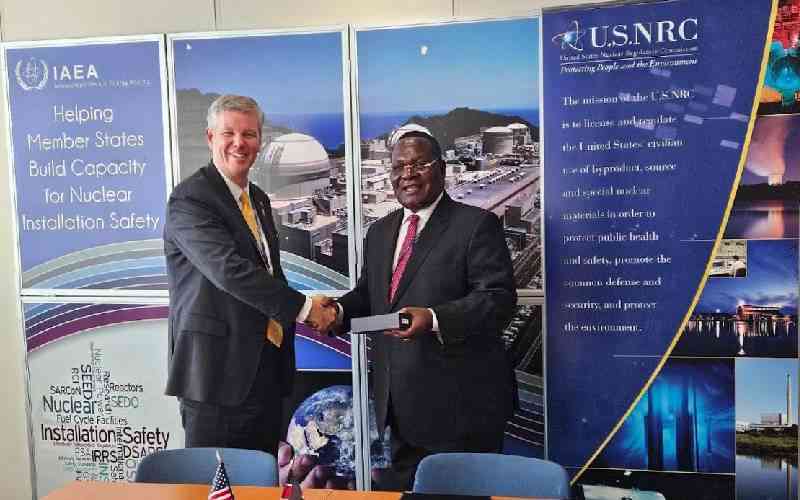×
The Standard e-Paper
Smart Minds Choose Us

Kenya Nuclear Regulatory Authority Chairman Omondi Anyanga and Christopher Hanson of the US Nuclear Regulatory Commission when they signed a Memorandum of Understanding in Vienna on Tuesday. [Courtesy]
Kenya has signed a memorandum of understanding (MoU) with the US as it seeks safe and secure deployment of nuclear technology.







